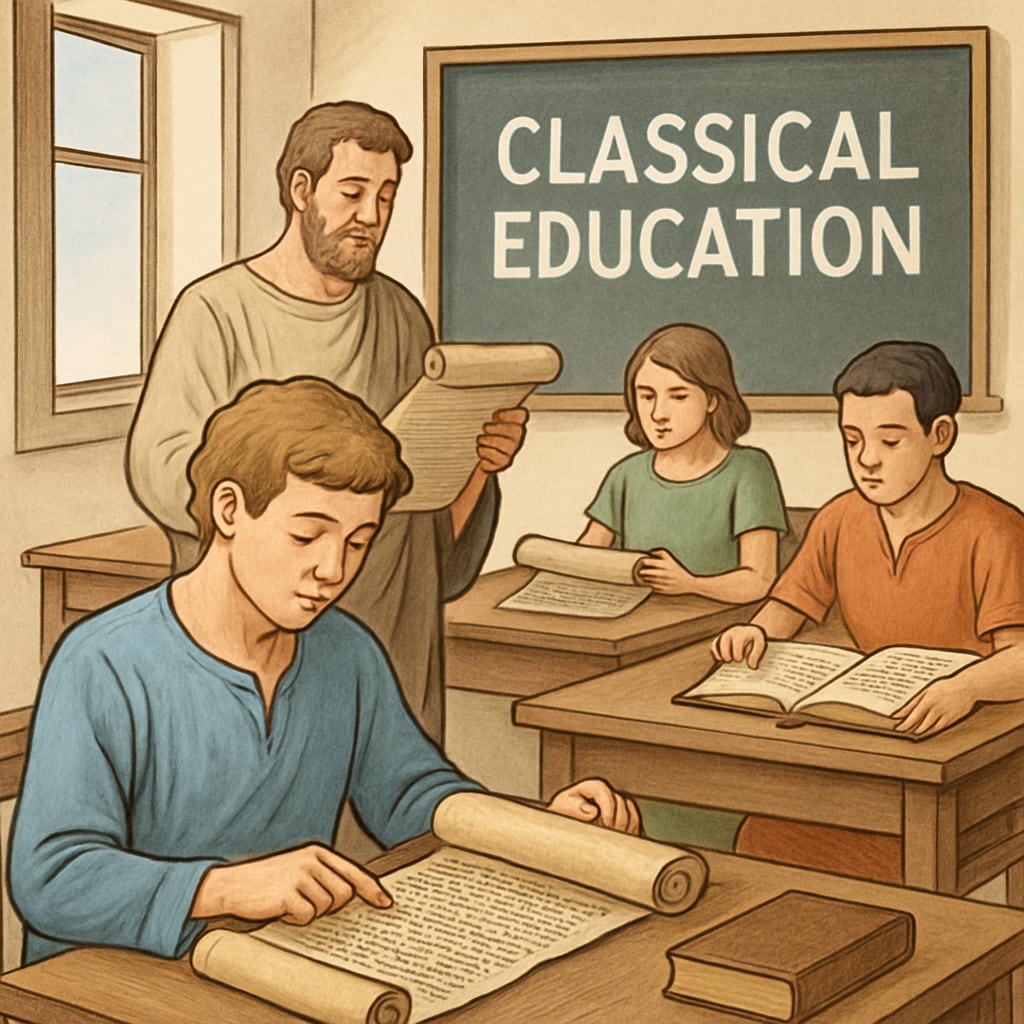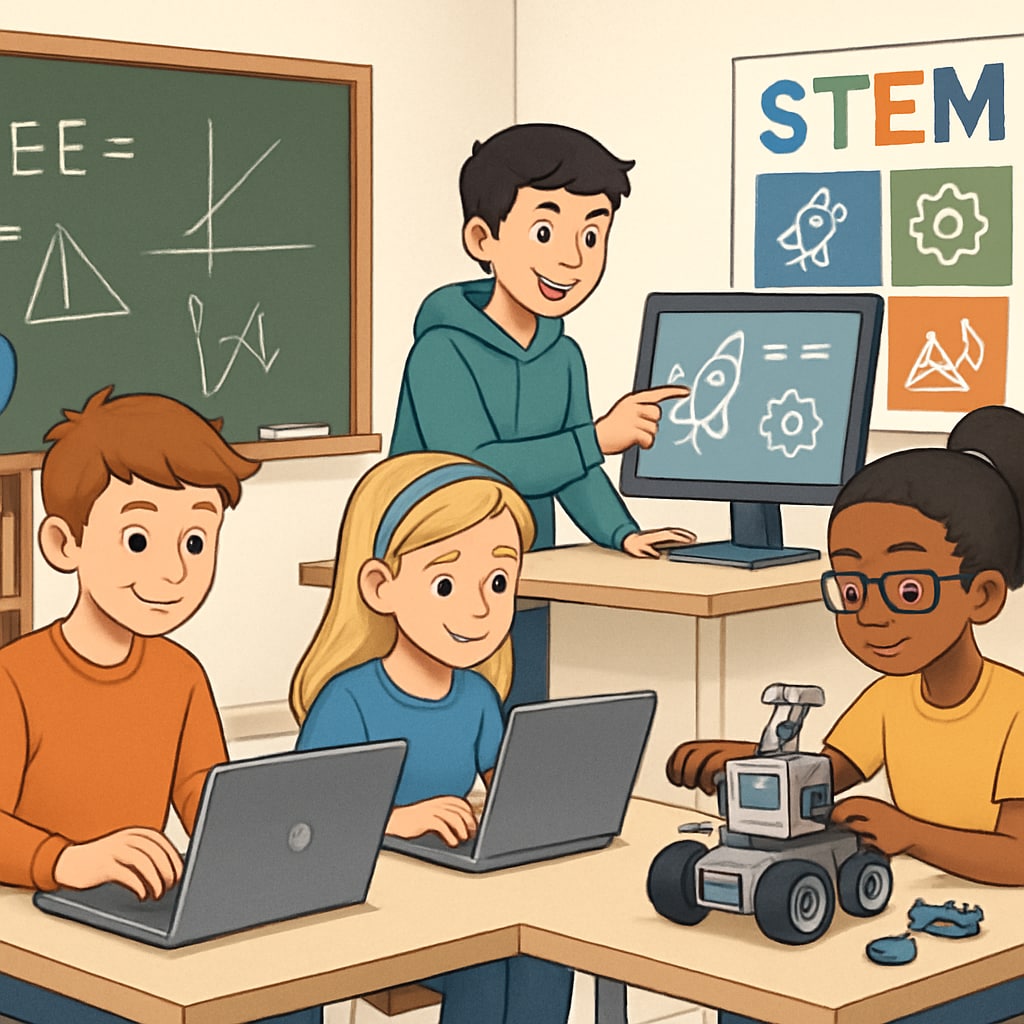Classical education, a framework rooted in the study of literature, philosophy, and the liberal arts, once shaped the intellectual foundation of many societies. However, its decline in modern K-12 education systems marks a significant historical shift. By contrasting the educational ideals of the Founding Fathers with the needs of today’s society, we can uncover the social, economic, and cultural forces driving this transformation and reflect on its implications for contemporary learning practices.
What Is Classical Education and Why Did It Flourish?
Classical education centers on the “trivium” (grammar, logic, and rhetoric) and the “quadrivium” (arithmetic, geometry, music, and astronomy). These disciplines were considered essential for cultivating critical thinking, ethical reasoning, and leadership skills in students. During the era of the Founding Fathers, such as Thomas Jefferson and Benjamin Franklin, classical education was seen as a means to nurture informed citizens capable of participating in democratic governance.
In this period, education was deeply intertwined with the study of ancient texts from Greek and Roman philosophers, as well as the Bible. The goal was not merely to acquire vocational skills but to pursue wisdom and virtue. However, as societies evolved, this purpose became less aligned with the practical needs of industrialized economies and globalized cultures.

The Historical Causes Behind the Decline of Classical Education
Several factors contributed to the decline of classical education. First, the Industrial Revolution shifted societal priorities toward technical and vocational skills. As factories and mechanized industries grew, the demand for a workforce proficient in practical skills overshadowed the need for philosophical inquiry.
Second, the rise of progressive education philosophies in the late 19th and early 20th centuries emphasized experiential learning, child-centered approaches, and real-world application. Thinkers like John Dewey argued that education should prepare individuals to engage with modern society rather than focus on ancient traditions.
Third, globalization and rapid technological advancements have transformed the skills required for success. Digital literacy, STEM (science, technology, engineering, and mathematics), and soft skills like collaboration and adaptability are now prioritized over the classical focus on rhetoric and logic.

The Influence of Founding Fathers and Their Educational Legacy
The Founding Fathers’ commitment to classical education had a profound impact on the early development of the United States. Their knowledge of philosophy, political theory, and ethics shaped the foundational documents of the country, such as the Constitution and the Declaration of Independence. For example, Jefferson’s advocacy for public education was rooted in his belief that a well-educated citizenry was vital for democracy.
However, as modern education has shifted away from these ideals, some scholars argue that we risk losing the ability to think critically and engage in deep, ethical reasoning. While STEM fields drive technological progress, classical education fosters the analytical and moral frameworks necessary to navigate complex societal challenges.
Lessons from the Past: Can Classical Education Inform the Future?
Despite its decline, there is a growing movement to revive classical education principles. Private schools, homeschooling networks, and some charter schools have embraced this approach, integrating classical texts and Socratic dialogue into their curricula. Proponents argue that such an education cultivates well-rounded, thoughtful individuals capable of lifelong learning.
For example, integrating classical elements into modern education doesn’t mean abandoning STEM or digital literacy. Instead, a balanced approach could include teaching students how to apply critical thinking and ethical reasoning to contemporary challenges, such as artificial intelligence or climate change.
In addition, classical education reminds us of the importance of wisdom and virtue—qualities that remain relevant regardless of the era.
Conclusion: The Enduring Value of Classical Education
The decline of classical education reflects broader historical changes in society, including industrialization, globalization, and technological innovation. While its role in modern education has diminished, the intellectual legacy of the Founding Fathers demonstrates its enduring value. By revisiting the principles of classical education, we can enrich modern educational systems and better prepare students for the ethical and intellectual challenges of the 21st century.
Ultimately, the question is not whether classical education should replace modern approaches, but how its timeless insights can complement and enhance contemporary learning. As we navigate an increasingly complex world, the wisdom of the past remains a vital guide to the future.


